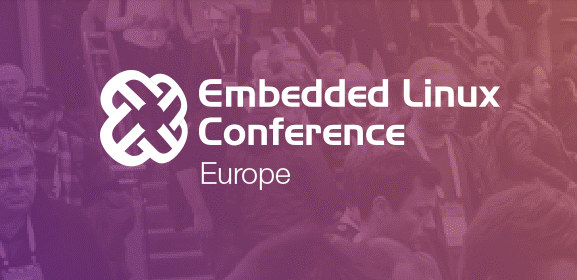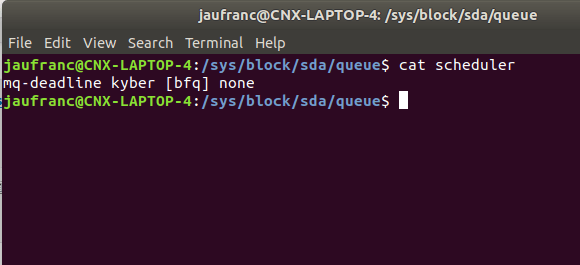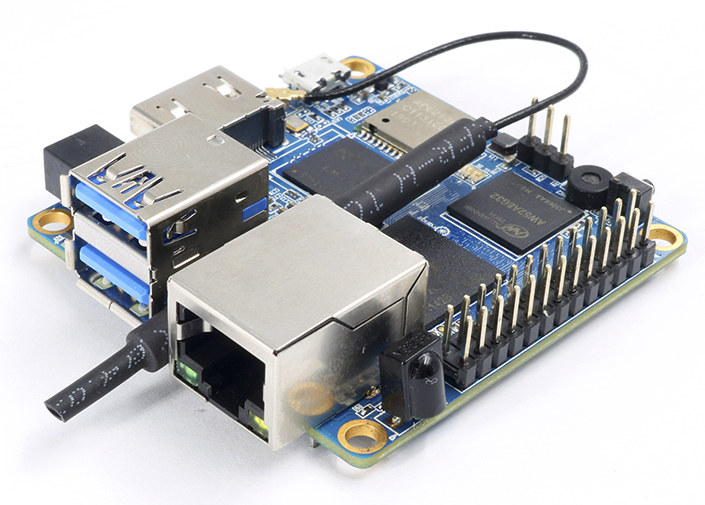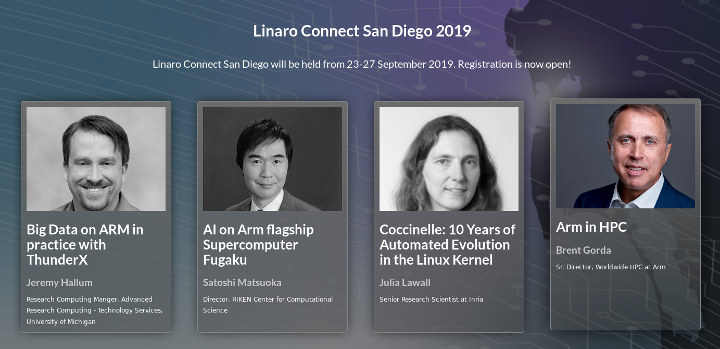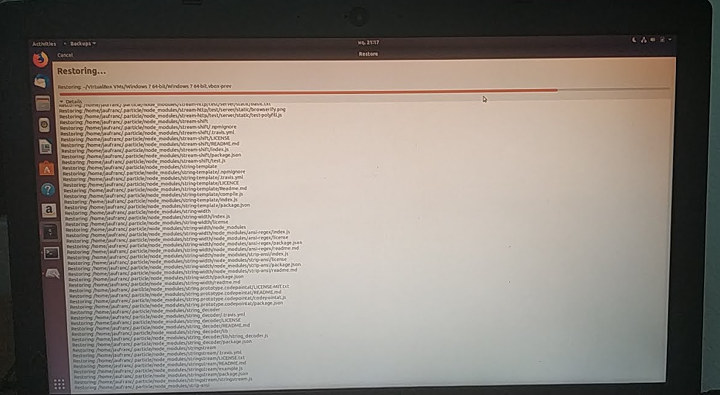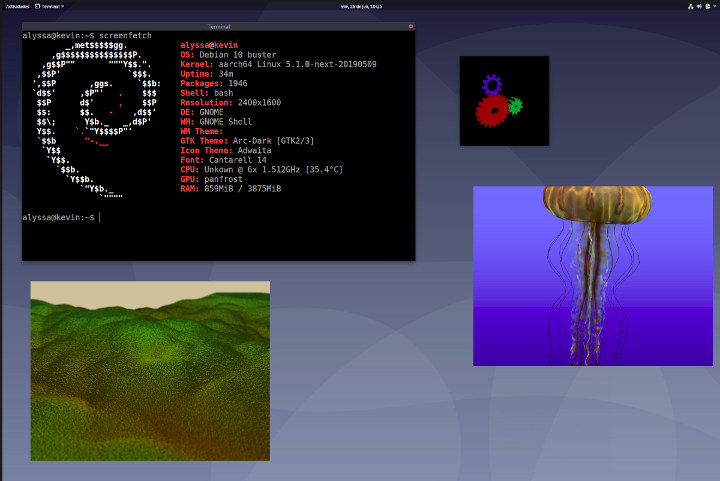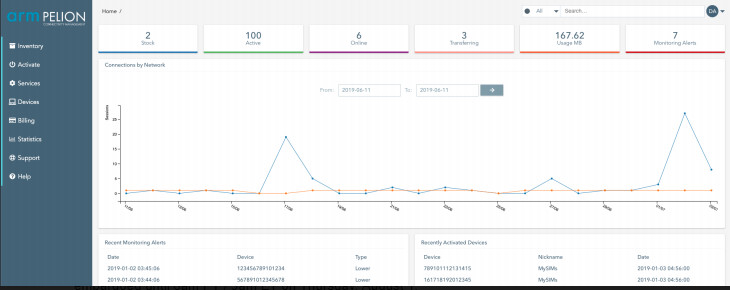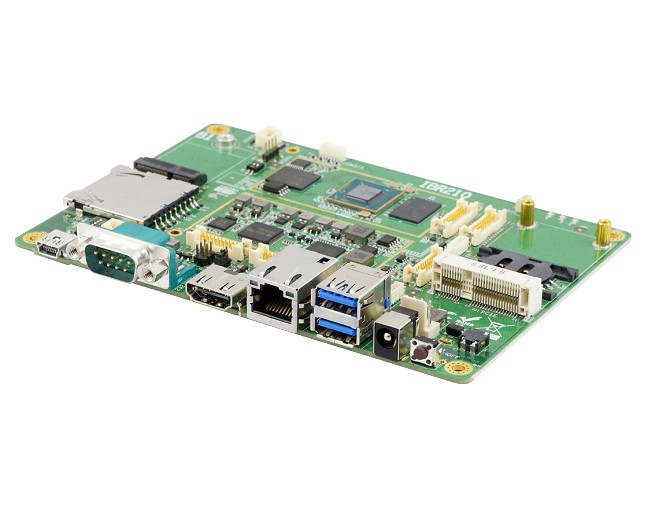I may have just written about Linaro Connect San Diego 2019 schedule, but there’s another interesting event that will also take place this fall: the Embedded Linux Conference Europe on October 28 -30, 2019 in Lyon, France. The full schedule was also published by the Linux Foundation a few days ago, so I’ll create a virtual schedule to see what interesting topics will be addressed during the 3-day event. Monday, October 28 11:30 – 12:05 – Debian and Yocto Project-Based Long-Term Maintenance Approaches for Embedded Products by Kazuhiro Hayashi, Toshiba & Jan Kiszka, Siemens AG In industrial products, 10+ years maintenance is required, including security fixes, reproducible builds, and continuous system updates. Selecting appropriate base systems and tools is necessary for efficient product development. Debian has been applied to industrial products because of its stability, long-term supports, and powerful tools for packages development. The CIP Project, which provides scalable and […]
BFQ (Budget Fair Queuing) I/O Scheduler Improves Linux Systems Responsiveness (Video)
Storage is normally the slowest part of a system, and operating systems such as Linux try to limit I/O access with “tricks” like caching. The I/O scheduler may also matter if you have multiple programs accessing the same drive, and in Linux 4.12 implemented two new multi-queue block I/O schedulers, namely BFQ (Budget Fair Queuing) and Kyber that are meant to improve the performance of the systems. If you’re using Linux 5.2 you may even get further improvements since performance tweaks make application start-up times under load to be up to 80% faster. I have never seen BFQ in action so far, but earlier this year, Paolo Valente, who is working for Linaro, made a video with an Acer Chromebook 15 showing Google Chrome launch time using the default mq-deadline schedule, and bfq-mq scheduler. The test involves writing a 1.5GB file to the drive with dd, and clicking on the […]
Orange Pi Zero2 is a Tiny Allwinner H6 SBC with HDMI 2.0, USB 3.0, Ethernet & WiFi
Shenzhen Xunlong Software launched a refresh of their Orange Pi Zero board, namely Orange Pi Zero LTS, a couple of weeks ago. The company is now about to launch another SBC of the “Zero” family. Slightly larger than its predecessor, Orange Pi Zero2 is also quite more powerful with an Allwinner H6 quad core Cortex-A53 processor, and more versatile thanks to the addition of a USB 3.0 port, HDMI 2.0 video output, and a built-in microphone. Orange Pi Zero2 specifications: SoC – Allwinner H6 quad-core Arm Cortex-A53 processor with Arm Mali T720 GPU with support for OpenGL ES3.1/3.0/2.0/1.1, Microsoft DirectX 11 FL9_3 Memory – 512MB LPDDR3 (Allwinner AW52A8G32) Storage – 4GB eMMC Flash and microSD card up to 32GB Video Output – HDMI 2.0a port Video Decoding – 10-bit H265/HEVC up tp 4K60 or 6K30; H264/AVC up to 4K30; VP9 up to 4K30; AVS+/AVS up to 1080p60 Network Connectivity 802.11 […]
Linaro Connect San Diego 2019 Schedule – IoT, AI, Optimizations, Compilers and More
Linaro has recently released the full schedule of Linaro Connect San Diego 2019 that will take place on September 23-27. Even if you can’t attend, it’s always interested to check out the schedule to find out what interesting work is done on Arm Linux, Zephyr OS, and so on. So I’ve created my own virtual schedule with some of the most relevant and interesting sessions of the five-day event. Monday, September 23 14:00 – 14:25 – SAN19-101 Thermal Governors: How to pick the right one by Keerthy Jagadeesh, Software Engineer, Texas Instruments With higher Gigahertz and multiple cores packed in a SoC the need for thermal management for Arm based SoCs gets more and more critical. Thermal governors that define the policy for thermal management play a pivotal role in ensuring thermal safety of the device. Choosing the right one ensures the device performs optimally with in the thermal budget. […]
How Do You Handle Backups in Linux? Hardware, Software, Configuration, etc…
Linux EXT-4 File System Corruption & Attempted Recovery There’s a file system corruption bug related to EXT-4 in Linux, and it happened to me a few times in Ubuntu 18.04. You are using your computer normally, then suddenly you can’t write anything to the drive, as the root partition has switched to read-only. Why? Here are some error messages:
|
1 2 3 4 |
[15882.773747] EXT4-fs (dm-4): re-mounted. Opts: (null) [15898.557605] EXT4-fs error (device dm-4): ext4_iget:4831: inode #2113041: comm rm: bad extra_isize 20100 (inode size 256) [15898.568305] EXT4-fs error (device dm-4): ext4_iget:4831: inode #2113042: comm rm: bad extra_isize 35148 (inode size 256) [15898.569774] EXT4-fs error (device dm-4): ext4_lookup:1577: inode #2557277: comm rm: deleted inode referenced: 2113043 |
What then happens is that you restart your PC, and get to the command where you are asked to run:
|
1 |
esfsck /dev/sda2 |
Change /dev/sda2 to whatever your drive is, and manually review errors. You can take note of the file modified, as you’ll likely have to fix your Ubuntu installation later on. Usually the fix consists of various package re-installations:
|
1 |
sudo apt install --resintall <package-name> |
It happened to me two or three times in the past, and it’s a pain, but I eventually recovered. But this time, I was not so lucky. The system would […]
Rock Pi 4 SBC Runs GNOME & KDE Plasma using Panfrost Open Source GPU Driver & Wayland
One of the highlights of Linux 5.2 release was support for two new Arm Mali GPU open-source drivers, namely Lima for Mali-4xx GPU, and Panfrost for the Midgard Mali-T6xx/7xx/8xx series, and the more recent Bifrost Mali-Gxx GPUs. Collabora worked on the release and was donated a few Rock Pi 4 boards from Radxa directly to work on the project. For those who are not familiar, Rock Pi 4 board is powered by a Rockchip RK3399 processor with a Mali-T860MP4 GPU that is supported by Panfrost open source GPU driver. The company managed to have Debian 10 Buster running on Rock Pi 4 using 3D graphics acceleration thanks to Panfrost drivers on both GNOME and KDE Plasma desktop environment, as well as Weston Wayland compositer. The good news is that you can build Rock Pi 4 images by yourself using Debos with the following commands:
|
1 2 3 |
git clone https://gitlab.collabora.com/rockpi/rockpi4 cd rockpi4 docker run --rm --interactive --tty --device /dev/kvm --workdir /recipes --mount "type=bind,source=$(pwd),destination=/recipes" --security-opt label=disable godebos/debos --scratchsize=8G rockpi4.yml |
Alternatively, you could directly download […]
Arm Releases Pelion Connectivity Management 2.0 Platform with Greater Automation
Arm has announced its latest version of Pelion IoT Platform, a no-upgrade needed platform Pelion Connectivity Management 2.0 a SaaS with an automation engine. Previously, we reported on the Sigma Delta Technologies modular devkit that was designed to work with the cloud-based Arm Pelion 1.0 device management service through the Mbed OS, focused on IoT development. The Pelion Connectivity Management 2.0 adds a level of automation that the Pelion 1.0 didn’t have, but that the company felt the customer base in the IoT industry wanted. The new features expand on the Pelion platform, through the Mbed OS, which helped the platform expand through cloud-based management services. The loudest voices in the ever-expanding and transforming IoT industry have said that automation is the key to removing barriers that allow IoT to scale. Pelion 1.0 already offered a single, cloud-based connectivity solution for managing IoT devices. Pelion 2.0 allows IoT devices to […]
IBase IBR210 i.MX 8M SBC Targets Multi-Display Digital Signage
The latest release from IBase is a single board computer that seems to be designed for the mass business markets, especially in signage. The IBR210 is a 3.5-inch (147 x 102 mm) low-power multimedia SBC based on the NPX ARM Cortex-A53/Cortex-M4 i.MX 8M processor that comes in either a dual or quad-core running in the 1.3 GHz to 1.5 GHz frequency range. The unit was announced on August 1, 2019, but as of yet there is no pricing information. The GPU is a Vivante GC7000Lite/GC7000VLX, and an integrated Cortex-M4F real-time core, in the i.MX8M. Although for the i.MX8M Mini is a faster and newer SoC, the i.MX8M supports 4K video and HDR. The system runs Android 9 or Yocto v2.5 Linux, with up to 3GB soldered LPDDR4 and up to 64GB eMMC. The video output supports 4K via HDMI 2.0, while there are 2 USB 3.0 ports. The board supports […]


